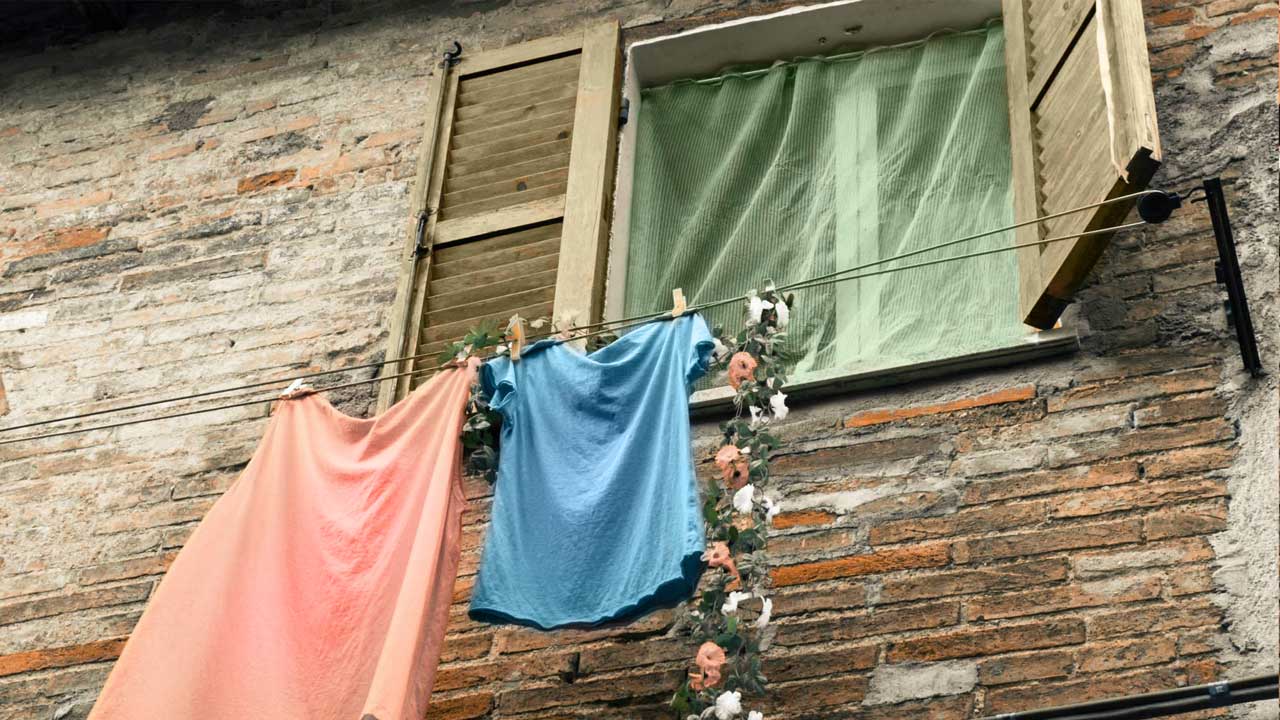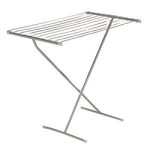Keep your washing machine fit with vinegar

By Linda Cornelius
ecogal Author and Designer
The other day, my beloved 25 year old washing machine started loosing some water, which I saw trickling out on the floor. You know the feeling: oh, now what is it going to cost me? Will it repair, or is it the end?

Clothes to wash
This, of course is especially true for this old and faithful machine.
As the nice technicians always tell me, my machine is really worth repairing. It was a good brand and high quality for the time, and it was built to be practically indestructible, which of course I have the living proof of, after all these years.
Fortunately nothing much was wrong. The water-tube was loosening up because of limescale, and that was really all! Sigh of relief, new tube mounted, and I was ready to go.
Is it ok to use vinegar against limescale?
Since I had the technician at hand, I told him I was only using vinegar against limescale. because I prefer natural products wherever I can. Was it ok? He had given me a special cleaning product, because my washing machine was rather choked with limestone. So was I actually doing the right thing, here?
He told me yes, it was actually fine: vinegar doesn’t hurt the machine at all, and is great for daily use. Just remember to make one deep-cleaning per year, and everything will be fine.
Just standard white vinegar is one of my secret tips for washing with less chemicals, one cup per load, that’s all I need.
Besides, it actually deodorizes really well (don’t worry, no vinegar smell is left after washing!), sanitizes and helps keep the colors vivid because it prevents build-up of detergent and limescale residue, which is very important for me since we have very, very hard water here. One more advantage: since vinegar in and of itself can also be used as a fabric softener, I end up using much less softener, if at all.
So vinegar it is, for many reasons.
Another trick I use is to actually use much less washing liquid than it says on the bottles.
Our clothes aren’t really dirty, are they? Not if you work in an office and just wash your clothes very often so they are always clean and nice, for sure. It would be different if I had to wash a someones clothes after repairing a car, or baby things, for example. But for most of us it’s not the case, we just wash away, and the clothes aren’t really dirty.
I’ve taken the bottle-top and punched a hole in it, so now I can just squirt a bit of liquid for each wash and it’s plenty enough. And it saves me money too, along with generating less pollution.
I do the same hole-punching for the fabric softener bottle, so I just naturally keep the quantities I use at an absolute minimum.
The last quick trick is to wash in cold water whenever the load is not very dirty (and that is: most of the time!).
Underwear and similar I still wash in warm water, but I actually stop at 140°F (60°C), it’s fine for most ‘hot’ uses. I never get as far as the 200°F (90°C) my washing machine reaches. And colored clothing are washed cold or at 100°F (40°C). This saves a lot of electricity and makes the washing cycle much faster too, as well as limiting limestone buildup, obviously, since heat exponentially increases it.

A practical free-standing clothes drier. I’ve found that the simplest model, like this one, is the best. It’s easy to put away and you can hang nearly everything with ease.
I do not own a drying machine so I line-dry everything.
Its’ much kinder to your laundry anyway. My clothes and bedding last forever in great shape, so something must be very right about how I wash! Find a nice, discrete spot and hang your clothesline – or keep one or two of these practical indoor drying standers at hand when you wash.
Of course: if outside, choose a shady spot so the Sun doesn’t fade your laundry. It doesn’t take long: most of the time, when I hang my laundry, it’s dry the next day, if I use the indoor model – while outdoors it can be as fast as an hour or so, depending on the weather, so it’s really never a problem. Besides: the clothes dryer is a heavy electricity-consuming appliance, did you know that? Another reason to go natural.
There are actually various ways to keep your washing machine (and the planet) as clean as possible: my mother-in-Law used 1 or 2 tablespoons of cooking salt when washing. Half a cup Baking soda can also be added to your load, to help fabrics maintain their brightness.
Want more info?
I found a great link with more tips for you at Organic Authority, there were even some I never heard of.
